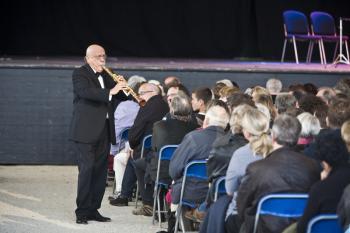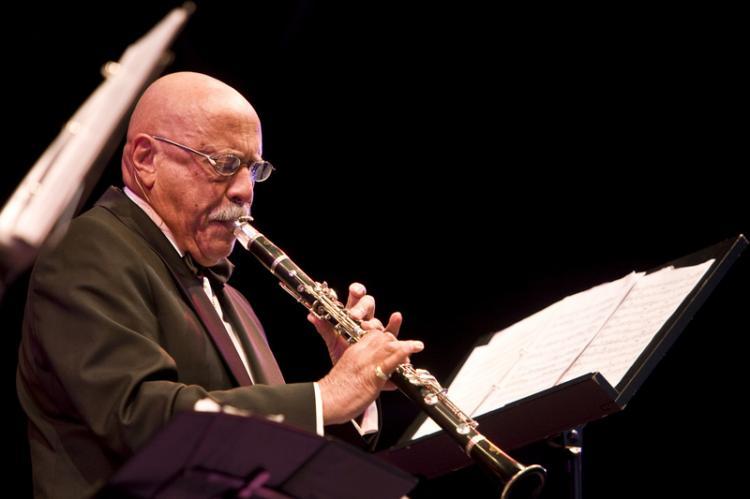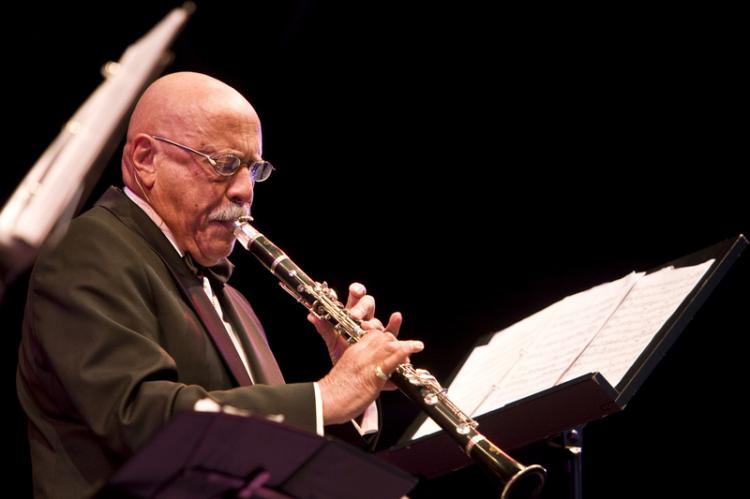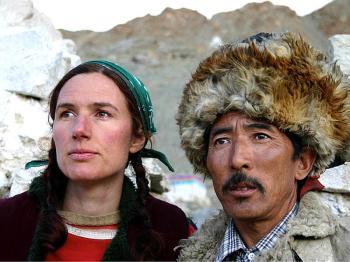An Interview with World-Renowned Clarinetist, Giora Feidman
Giora Feidman, world-renowned clarinetist, talks about the rich inner world which he shares through his music.

CLOSE AND PERSONAL: Feidman likes to perform close to his audience. MATTHIAS KEHREIN/EPOCH TIMES
|Updated:




